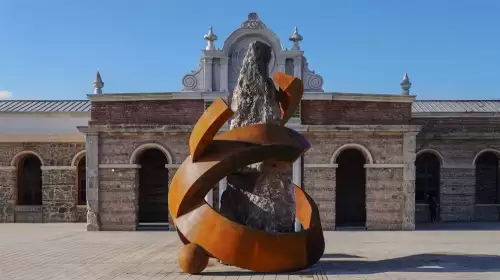Izmir's Torbalı Forest Nursery Contributes to Türkiye's Green Future
Millions of saplings produced in Izmir, in western Türkiye, contribute to the country’s green future.
Efforts to Reforest Burned Lands
The saplings grown at the Torbalı Forest Nursery Directorate, established in 1959 on a 60-hectare (148.26 acres) area, help reforest burned lands, while tall and shrub ornamental plants beautify reforestation areas, parks and gardens across the country.
Increasing Sapling Production Targets
The nursery produced 4 million saplings of 50 different species last year, and the target for 2025 is to double that number nearly.
Focus on Protecting Nature
Haydar Can Kirazlı, the Head of Torbalı Forest Nursery, explained that their efforts are focused on protecting nature and leaving a greener Türkiye for future generations.
Diverse Range of Species
Pointing out that Torbalı is a low-altitude nursery, Kirazlı mentioned that the species produced here can grow at elevations ranging from 0 to 400 meters (0 to 1312 feet).
2025 Goals for Sapling Production
Kirazlı noted that most of the saplings produced are red pine, the primary forest tree of the Aegean Region, and added, "In 2024, we produced 4 million saplings of 50 different species. Our goal for 2025 is to produce 7 million saplings of 75 species.
Special Attention to Key Species
Most of the saplings we produce are red pine, which is sent to reforestation areas in the Aegean Region to help restore burned lands. In addition, tall and shrub ornamental plants are grown to beautify parks and gardens across the country." He mentioned that species such as blue and black cypress are given special attention in forest areas, as they act as safety barriers along forest edges.
Challenges Posed by Climate Change
Kirazlı also pointed out that rising temperatures due to climate change affect the sapling production process. "Due to the increasing temperatures in recent years, the seed germination process is slowing down and we only have about two months for production," he said.
Infrastructure for Quality Production
The Torbalı Forest Nursery produces tall and well-formed trees like plane trees and false acacia, which are preferred for park and garden landscaping. The nursery maintains two cold storage units to preserve seeds and saplings. This infrastructure ensures the continuity of the production process and maintains quality in shipments.





